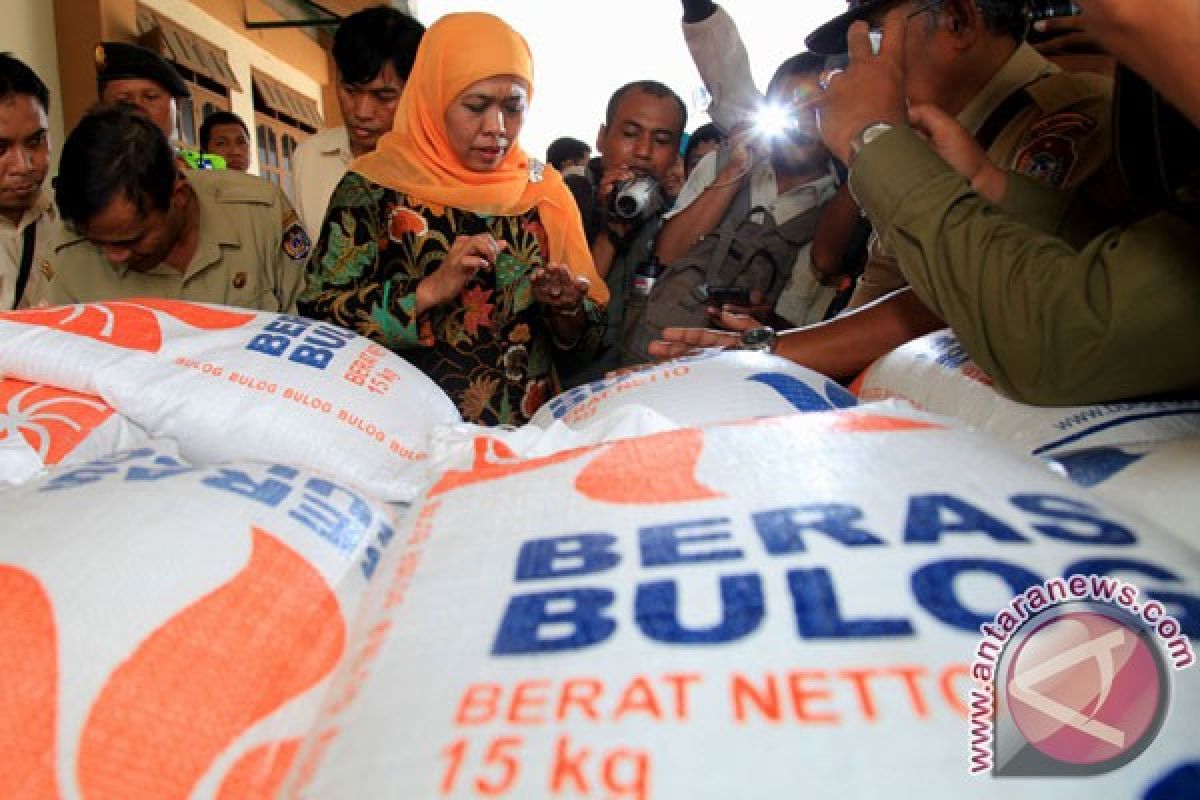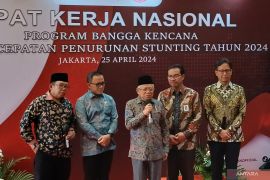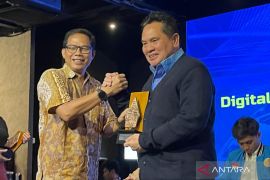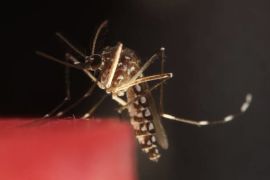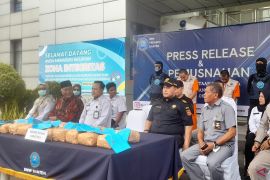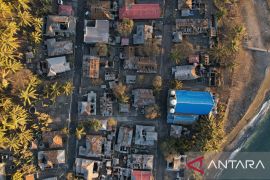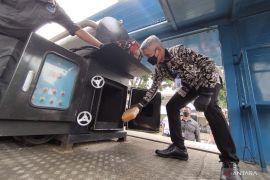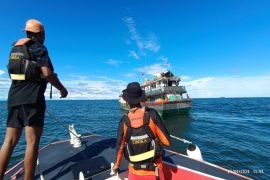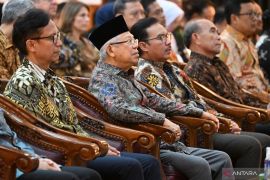The assistance will be distributed to the beneficiaries who are scattered in 514 districts/municipalities in various parts of the country. The assistance in the BPNT and Rastra programs will be distributed in four stages in February, March, July, and August next year.
Coordinating Minister for Human Development and Culture Puan Maharani stated that the government is ready to distribute the BPNT and the Rastra rice program for 2018.
The minister, after a ministerial coordination meeting on the preparedness of BPNT distribution at her office in Jakarta on Friday, noted that her ministry has prepared technical matters for the distribution of BPNT for the first phase of the program in 2018.
"Data of beneficiaries, by name and by address, have been submitted by the Ministry of Social Affairs to the distributor bank accompanied by the Official Delivery Report," Maharani remarked.
According to the coordinating minister, the expansion of BPNT in 2018 will be implemented in four phases, namely the first phase in February, the second phase in March, the third stage in July, and the fourth stage in August.
According to Maharani, the recipient families of the assistance, a total 15,498,936 BPNT beneficiaries (KPM), are spread over 514 districts/municipalities.
To support the smooth distribution of BPNT, at least 75,529 e-warongs (electronic-shops) will be prepared in stages. E-Warong is a bansos (social assistance) shopping place, which is an agent for members of the Himbara (association of state-owned banks) banks or community stalls that have been selling basic foods.
Beneficiary families can get the assistance in the form of rice and eggs at the e-warong. The suppliers of food to the e-warong are open. To ensure e-warong readiness, the Himbara will provide electronic data capture machines in every e-warong and provide education to the agents.
The coordination meeting has been held to discuss the number of BPNT beneficiary families (KPM) in 2018, the timing of the implementation of the distribution, and the implications that need to be anticipated.
In previous coordination meetings, it was also agreed that the data of BPNT and Rastra assistance recipients will be taken from the Integrated Database (BDT) Year 2015.
The government ensures that the distribution of non-cash food assistance in 2018 will be better than the same food assistance implemented in 2017. "The government is currently taking effective steps to ensure that BPNT is running well," Maharani explained.
The effective way is by ensuring that the beneficiary family data have been right and is on the right track. The e-warong has also been running effectively. There is also the need for popularizing the program and providing education as a literacy effort on the banking products to beneficiary families.
An evaluation on the BPNT given to the 1.2 million beneficiary families in 2017 was discussed in an inter-ministerial coordination meeting at the office of the coordinating minister for human development and culture.
"We evaluate the distribution of non-cash assistance in 44 cities in 2017; all were running well despite many obstacles, and the absorption of the assistance worked as expected," Maharani pointed out.
The Governor of Bank Indonesia (BI/the central bank), Agus Martowardojo, remarked that the Rastra rice program and BPNT will run in accordance with the plans and programs. "BPNT is assured to be more effective in 2018. We have made an evaluation to make sure who the beneficiaries are by name and by address. Therefore, the beneficiaries are clear," the central bank governor explained.
Martowardojo added that the general guidance on the distribution has been prepared and the technical guidance will be issued. The program will be carried out, in coordination with the Ministry of Home Affairs, to direct all local governments to support the program.
The central bank governor ensured that the stalls that will provide services to support the BPNT program are qualified and have digital financial service facilities, smart works, or electronic data capture.
In the meantime, Commission IV on food and agriculture affairs of the House of Representatives (DPR) wants that the BPNT to follow the rice for the poor assistance program carried out in 2017.
Commission IV chairman Edhy Prabowo said last week (Dec 7) that the BPNT is a good program, such as the one ever carried out in India, which provided three kinds of basic commodities to the holders of family prosperous cards.
However, Prabowo reminded that in India, the exchange of these important commodities is done through an institution or a kind of logistic board, while in Indonesia, it is done through certain private stores.
"What is under criticism is that the money used for BPNT is taken from Raskin money (rice for the poor money), which is a buffer stock to maintain the availability of our foods," he explained.
Yet, as explained by Maharani, the government ensured that the distribution of BPNT in 2018 will be better than the same program implemented in 2017.
(A014/INE)
EDITED BY INE/B003
(T.A014/A/KR-BSR/B003)
Reporter: Andi Abdussalam
Editor: Heru Purwanto
Copyright © ANTARA 2017
